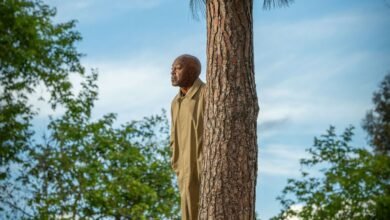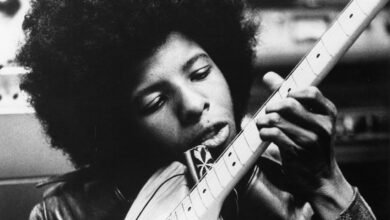
In a new book, “When the Clock Broke,” the writer John Ganz examines how the politics of the Trump years were seeded in the early nineteen-nineties. This strange period included a brief but powerful recession, civil unrest in Los Angeles following the acquittal of police officers who brutally beat Rodney King, and the rise of unlikely political figures such as the neo-Nazi David Duke and the paleoconservative nationalist Pat Buchanan. A sense of despair and dissatisfaction with the government and with the direction the country was headed culminated in the 1992 Presidential election, in which Buchanan challenged George H. W. Bush for the Republican nomination, and a third-party candidate, Ross Perot, received almost twenty per cent of the vote—the most in more than three quarters of a century. Through figures such as Buchanan and Duke, Ganz attempts to understand why and how right-wing extremism flourished in these years. “It was an era where America felt itself to be losing out,” he writes: “losing its dominant place in the world, losing the basis of its security and wealth, and losing its sense of itself, as if a storm cloud rapidly gathered over the country and the national mood suddenly turned dour, gloomy, fearful, and angry. Americans were fed up.”
I recently spoke by phone with Ganz, who also publishes the Substack “Unpopular Front.” During our conversation, which has been edited for length and clarity, we discussed the strangeness of that 1992 election, what David Duke meant to the far right, and why the debate over whether Donald Trump is a fascist continues to be important.
You think the early nineties have been under-discussed in conversations about where America is, politically, in 2024. Why?
Around the time of Charlottesville, there were a lot of articles interviewing people on what was then called the alt-right. All these guys who had turned out to be Nazis kept on talking about Murray Rothbard, this Jewish libertarian economist from the Bronx; they said he was who had got them on their path.
This was Nazis talking about a Jew in a different context from what you’d normally hear.
Exactly, it was kind of admiring, which I thought was really, really strange and remarkable. Trump had become President pretty recently, and people were trying to figure it out. I found this essay by Murray Rothbard called “Right-Wing Populism,” and it was his response to the unsuccessful 1991 run of David Duke for the governorship of Louisiana. David Duke had been a former—or “former”—Klansman and neo-Nazi, and he lost the race for governorship, but he won a majority of the white vote. He won the Republican nomination over and against the wishes of the Republican establishment. I thought that this crazily and eerily predicted the types of things you started to hear from Trump and his surrogates, and from the people on the extremes about Trump.
What can you tell us about Rothbard?
He had an incredibly strange political life. He grew up in a communist milieu in the Bronx, but his father was a free-market libertarian conservative, and he got even more into that. At Columbia, he was the head of the students for Strom Thurmond group. But he considered himself a remnant of the pre-World War Two, America First Old Right who was very isolationist and didn’t really like the hawkishness of the conservative movement as it appeared during the Cold War. In the nineteen-sixties, Rothbard actually ended up rubbing shoulders with the new left because he viewed their anti-statism as potentially compatible with his own. He became one of the people who founded the Cato Institute, the libertarian think tank, but he then got pushed out, in part, for being too strange and extreme.
Basically, what he’s saying in this essay is that David Duke’s run against the establishment of the right, which Duke thinks has become too enmeshed in this over-all oligarchy of liberal élites, should be the future strategy pursued by people who are genuine right-wingers, not these squish conservatives. He has this strange (for a libertarian), almost Marxian class analysis, which has a racial, I wouldn’t even say subtext, a racial component, in which he says that the corporate bandits and the state are in league together, and that they have a constituency of the underclass, and that they exploit and oppress people in the working class and the people in the middle. And this was what you started to hear from the people around Trump—the people who were able to articulate Trump, insofar as he had a coherent political ideology or message behind him.
Rothbard also wanted the right-wing populist to be a demagogue. So he said that, as Joseph McCarthy did, you have to directly reach out to the masses and menace these liberal élites. And he said that everyone gets McCarthy wrong. People say, “Oh, he was a crude guy, but the anti-Communism part was right.” He says, “No, we got it backward. His menacing, demagogic nature was what was good about him; that’s what was powerful about him.”
David Duke has been talked about before as an antecedent to Trump, and so has Pat Buchanan—two major figures in the book. What did you learn about them that was new or surprising?
I think with Duke it was his strange ability—for a little period of time, at least—to have this Teflon quality with his supporters. No attack could really work on him. The other thing about Duke that reminded me of Trump is how much he scared the Republicans and how much they struggled to contain him. With Buchanan, I think it’s not appreciated how much he understood Duke’s viability as a signal that perhaps his own moment had arrived. He would prevaricate and frankly just lie and say, “Well, I don’t really have much to do with David Duke.” But in other places, he basically said, “Yeah, his candidacy really made me think it was time to launch my own.”
In reading your book, I kept having to pause to remind myself that neither of these two guys came even remotely close to being President. We can go back and look at them as antecedents and curiosities, but there’s a way in which, even though they’re both hateful, awful figures, they don’t feel dangerous in the same way that Trump does in this moment. What changed?
The conditions that Duke and Buchanan were taking advantage of have worsened or become more acute. The country is a lot less white than it was back then, and the issues that that brings up for people are more intense. The other thing is that the country has undergone a lot of deindustrialization; the composition of the workforce and the ways that people make a living have changed a great deal from that time. The book takes place after a recession, which for people at the time felt very bad but in historical retrospect was nothing like what happened in 2008.
I think the loss of memory between the big moments and the little moments is really what my book is all about. This 1992 election is not thought of in the same way we think about 1968, or 1932, or even Obama’s elections, and definitely not 2016. It’s not really considered an important time in American history. But I believe that if you read it in a certain way, you do begin to see the direction the country was going in. You can see the beginning of a lot of the things that took on a more dangerous form.
I also think that Trump is a synthesis of a lot of the things that, in the book, are still scattered and inchoate. So Trump is not just Big David Duke; he’s not just Big Pat Buchanan. He obviously has aspects of their appeal, but he also comes from a different world. He comes from New York politics. He comes from the world of tabloids, from the world of entertainment. He was a constant talk-show guest. Pat Buchanan was someone political junkies really knew and liked, but he was too bourgeois and too Beltway. He was still too D.C. And Trump speaks a much different language. Buchanan—although in many ways he’s a thug—quotes Yeats in his speeches and so forth. Trump doesn’t do that.
Can you talk more about the 1992 election itself? I think people now understand it as Bush losing the popularity he earned after his great success with the Gulf War because the economy tanked. And then you have this quirky Ross Perot figure. But why do you think it was so important?
That election, I believe, demonstrated a crisis in American politics in which both party establishments had trouble delivering a message that could excite and rally a majority. And a lot of people turned to protest candidates. Pat Buchanan was a protest candidate within the G.O.P., and, in a way, within the conservative party.
With Ross Perot, and maybe it wouldn’t have been possible, but there were points during that election when it looked like he might actually win. His candidacy reflected a sense of a rejection of both Republicans and Democrats as being out of touch, unresponsive, and only taking care of other élites in business or in different lobbies. Perot comes along and says, “I’m going to take care of all this stuff. I’m going to march in there and handle it, and I’m going to tell both these corrupt parties what’s up, and tell corrupt Congress what’s up.” Drain the swamp, essentially. He was the Caesarist solution that many people now see in Trump, and part of Trump’s playing around with the idea of a Presidential run was in Perot’s Reform Party. He saw a lane for himself which Perot was carving out.
Source link







